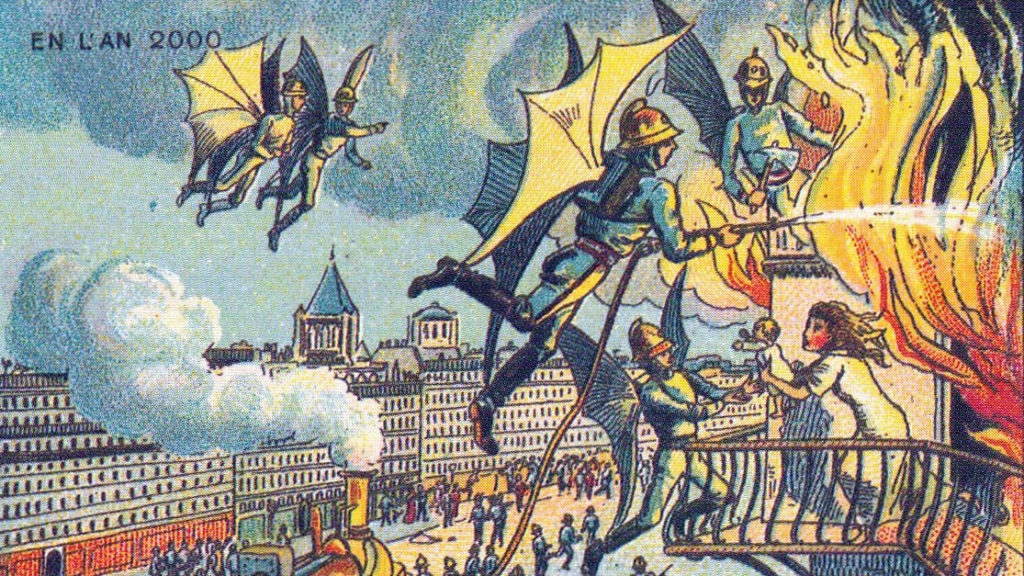
Wednesday
Otey Parish’s adult Sunday School—our “Adult Forum”—heard an economist refer to Edward Bellamy’s 1888 utopian novel Looking Backward this past Sunday. It made sense given that our theme this year is Jesus’s words to his home congregation (Luke 4:18-19):
The Spirit of the Lord is on me,
because he has anointed me
to proclaim good news to the poor.
He has sent me to proclaim freedom for the prisoners
and recovery of sight for the blind,
to set the oppressed free,
to proclaim the year of the Lord’s favor.
The passage from Luke has inspired us to invite people to speak on poverty, addiction, abuse, imprisonment, medical care, education in poor communities, and other pressing social issues. Doug Williams, Sewanee College’s treasurer and former member of the economics department, talked about income inequality, a key concern of Looking Backward.
When he was an undergraduate at Sewanee, Doug encountered Bellamy’s novel in a history class taught by one of the college’s first women faculty (Nita Goodstein). Having come from a fundamentalist background in a small southern town, Doug said the book turned his world upside down. Although he was an economics major, the novel prompted him to add ethics, morality, politics, history and the arts to his understanding of the world. In other words, he entered fully into the spirit of the liberal arts.
Bellamy’s book is set 112 years in the future, which is to say, in 2000. I rely on Wikipedia’s version of the novel to summarize the socialist utopia that America has become:
The major themes include problems associated with capitalism, a proposed socialist solution of a nationalization of all industry, and the use of an “industrial army” to organize production and distribution, as well as how to ensure free cultural production under such conditions.
The young man readily finds a guide, Doctor Leete, who shows him around and explains all the advances of this new age, including drastically reduced working hours for people performing menial jobs and almost instantaneous, Internet-like delivery of goods. Everyone retires with full benefits at age 45, and may eat in any of the public kitchens. The productive capacity of the United States is nationally owned, and the goods of society are equally distributed to its citizens.
Doug did not become a Bellamite. As an economics major, he learned that pure state planning does not work because figuring out consumer needs is too complex for any one entity. Some kind of market mechanism is necessary.
He also became learned, however, how capitalism contributes to poverty and income inequality. He is particularly critical of the way that income has increasingly flowed to the very wealthy while everyone else’s wealth stagnates.
The remainder of his talk looked at the reasons for increasing income inequality and the prospects for plans like Elizabeth Warren’s wealth tax and Andrew Yang’s proposal to give everyone $12,000 a year. (He was sympathetic with both but also pointed out the downsides.)
Looking at the talk from a literary perspective, I was struck by the impact of a novel on an undergraduate. Even a work as didactic as Bellamy’s can set one’s imagination in motion so that the world seems less fixed and immutable. That’s a remarkable achievement.
Further thoughts: To fill you on on some further items in the talk, Doug gave five reasons why incomes for the top 5% have almost doubled since 1989 and climbed even higher for the top .1%:
–tax rates on high incomes have declined;
–there’s been an increase in “assortative mating,” where similar demographics marry each other;
–college education (or lack thereof) has accelerated disparities
–globalization and the outsourcing of jobs has undermined pay; and
–technology, especially artificial intelligence, has resulted in increasingly high levels of labor displacement. Only jobs that face constantly face novel situations can’t be replaced (in other words, jobs for which computer code can’t be written, such as security personnel and janitors).
Regarding his cautions about plans to redistribute wealth, Doug said economists look to see how much “leakage” there will be, whether through tax avoidance, bureaucracy and the like. Certain levels of leakage the general public will find acceptable, too much leakage not. But something must be done because, if economic disparities continue to rise, the lower classes will continue to lose faith in the economic system and populist demagogues will feast on their discontent.

